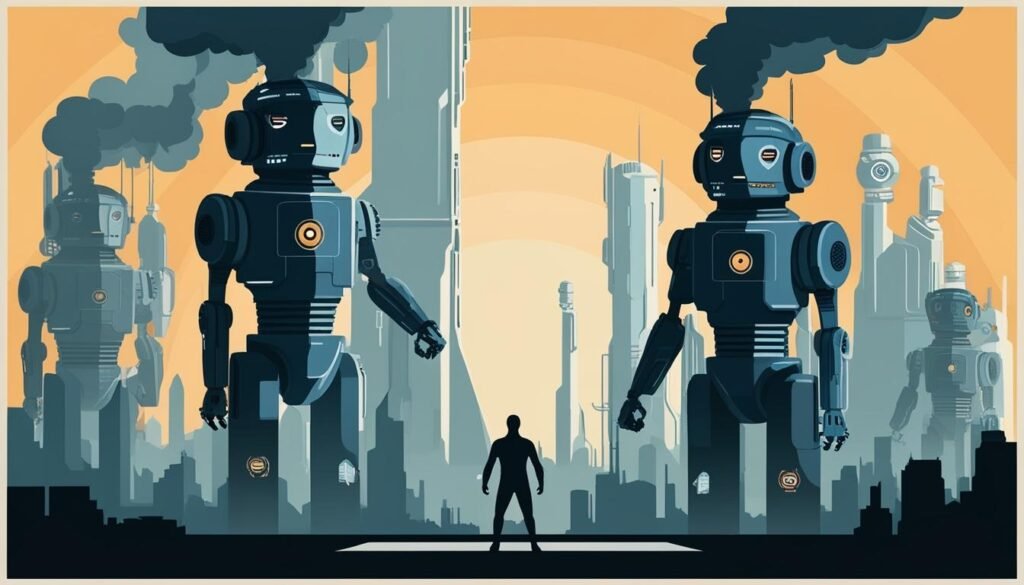As James Cameron’s classic film marks 40 years, experts and industry figures highlight its relevance in current discussions about the risks and ethical implications of AI technology.
The cinematic debut of James Cameron’s “The Terminator” occurred 40 years ago, on 26 October 1984, when audiences were first introduced to a chilling vision of a future dominated by self-aware machines. The film depicted a dystopian reality where intelligent machines trigger a global nuclear war, resulting in massive human casualties. Central to the narrative is the character played by Arnold Schwarzenegger, a robotic assassin from the future tasked with disrupting the potential rise of human resistance.
This depiction of technological dystopia has resonated over the decades, as discussions regarding the potential threats of artificial intelligence (AI) have become increasingly prevalent. Industry figures like Elon Musk have cited scenarios reminiscent of “The Terminator” to express concerns about AI’s existential risks to humanity, albeit typically in less cinematic and immediate forms.
Scholars and experts have weighed in on the plausibility and immediacy of such scenarios. Natalie Cramp of JMAN Group suggests that while the development of sophisticated humanoid robots with capabilities akin to the Terminator is conceivable, current technological trajectories do not favour such advancements within our lifetimes. Instead, Cramp highlights more prosaic threats posed by existing technologies like drones and autonomous vehicles. These tools, already integrated into everyday life, pose more practical and immediate concerns about malfunction and misuse.
Similarly, Professor Mark Lee from the University of Birmingham has emphasised the importance of not ceding too much control to AI, particularly in sensitive areas such as national defence. While the idea of AI-managed defence systems denotes a risky pull towards fiction, Lee underscores the symptoms of AI integration into decision-making processes that affect everyday life, such as automated job and mortgage application assessments. These systems carry societal implications, warranting careful ethical consideration and regulation.
The film’s enduring impact is not merely in entertainment but also in shaping public and expert dialogue around AI. Dr Tom Watts of Royal Holloway University notes the importance of maintaining human oversight in robotics and AI, especially in military applications amid global geopolitical instability. He argues for international cooperation in establishing ethical and legal norms to govern the future applications of AI to prevent the realisation of such dystopian futures.
Despite the ominous themes explored in “The Terminator,” technological progress has not halted cinematic advancements. In 1991, a sequel, “Terminator 2: Judgment Day,” introduced audiences to new concepts, including more sophisticated AI representations. These creative expressions continue to incite discussion around the bounds of AI development and its potential repercussions.
The cultural and scientific discourse surrounding AI in the decades since “The Terminator’s” release illustrates the film’s profound impact on how AI is perceived and understood. Even though the film’s portrayal of a post-apocalyptic battle with humanoid machines remains firmly in the realm of fiction, it continues to fuel crucial conversations about the ethical direction and governance of AI technologies in reality.
Source: Noah Wire Services


